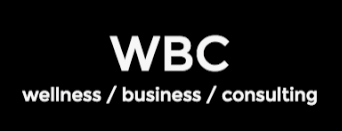As an entrepreneur, you likely often find yourself pulled in all different directions. A phone call about an issue here, a knock at your door there and an ever-growing inbox can make it so your mind is constantly distracted and you never really have time to move the needle on any of the work that needs to get done.
1. Follow The Impact Scale Rule
I follow the impact scale rule, which means I always analyze my tasks based on their overall impact on the business. I bet most leaders follow this method, though they might name it something else. My thinking tells me to be effective, not busy, and to maximize productivity by completing the task with the biggest impact first. By focusing on the task that will make the biggest difference in your work or personal life, you can make the most of your time and energy. Not only will you see significant progress on the task at hand, but you'll also gain momentum and motivation to tackle the rest of your to-do list with renewed focus and energy. So, start your day by identifying the task that will make the biggest impact and make it your top priority - Candice Georgiadis, Digital Day
2. Block Out Time For Focused Work
When I feel like a million things are going on and I can't stay focused, I use time blocking to prioritize and manage my day. This strategy involves planning tasks and setting a time limit for each one. For instance, I may check emails for 30 minutes, spend three hours writing and take one hour to promote our brands on social media. Time blocking allows me to hone my focus and stick to one thing at a time. As a result, I'm able to stay productive and work through my to-do list. - Chris Christoff, MonsterInsights
3. Seek Input From Decision-Makers
I communicate with the decision-makers and management in my workplace to determine our daily top three priorities. Why top three? Because if you narrow down your large to-do list to three tasks, then you can cross them off and work through a large load of projects. A workday has seven and a half to eight hours, and that is less time than it seems on the surface. If my employees or clients do demand a lot of my time, I set boundaries and ask them to schedule appointments or video calls within my calendar. Deadlines help with this organization, and every little bit of progress helps. - Duran Inci, Optimum7
4. Finish One Project Before Starting Another
It's easy to get pulled into many new projects, but it's more important to finish projects you've started. It's okay to put new projects on the back burner unless they're time sensitive and important in the near term. Ineffective teams, I've seen, always seem to be working but never getting anything done. It helps to assign priority levels to tasks, such as P1 or P2—meaning priority one and priority two. P1 tasks receive priority over any task listed as P2. - Andy Karuza, NachoNacho
5. Color Code Your Time
Whenever my schedule starts to get really full, one of my best strategies for keeping things organized and on track is using my calendar in a visual way. I’m a visual person, so having color-coded blocks on my schedule is helpful for me when planning my time. Depending on the type of activity, I use different colors for the blocks of time I’m scheduling. This way, I’m able to gain a quick read on how my time is being spent. Also, this system helps me see what I’ve got going on that day so I can better manage my energy levels. Some work demands different types of energy. For example, creative meetings are far more demanding on my mental energy than something more basic like answering emails. So, I schedule creative work when I’ll have the most mental clarity and energy. - Richard Fong, Trustable Tech
6. Think Of Your Time Like A Pie
As a business owner, I like to think of my time as a pie. I take a slice of the pie and assign it to each task on my list so I know how much time it will take me to finish each assignment. This way, I can see if I have enough total slices for everything on my plate without running out of time and energy halfway through my list. - Kristin Kimberly Marquet, Marquet Media, LLC
7. List Out Tasks By Importance
One strategy I have for prioritizing my time is to make a list of all the tasks I need to complete and then organize them according to importance. This works so well because it helps me visualize how much work I need to do and break it down into manageable chunks. It also allows me to focus on the one task at hand before moving on to the next, ensuring that I'm giving each task the right amount of attention. Plus, crossing things off my list is always satisfying! - Rachel Beider, PRESS Modern Massage
8. Take On Your Most Challenging Task First
I always prioritize my day with the most challenging task first—the “big fish.” Entrepreneurs, myself included, wear a lot of hats, so it is very easy to get distracted from the most important tasks. By being present and aware of the big picture first thing in the morning, you are better able to prioritize the rest of the tasks. Prioritizing might be the task that we like the least, as we’d rather put out fires as they come up, but it is the most important component of the “big fish first” strategy. I have used this strategy alongside my calendar for years and it helps immensely to be able to get what needs to be done out of the way, smoothing the path for the rest of the tasks. - Matthew Capala, Alphametic

